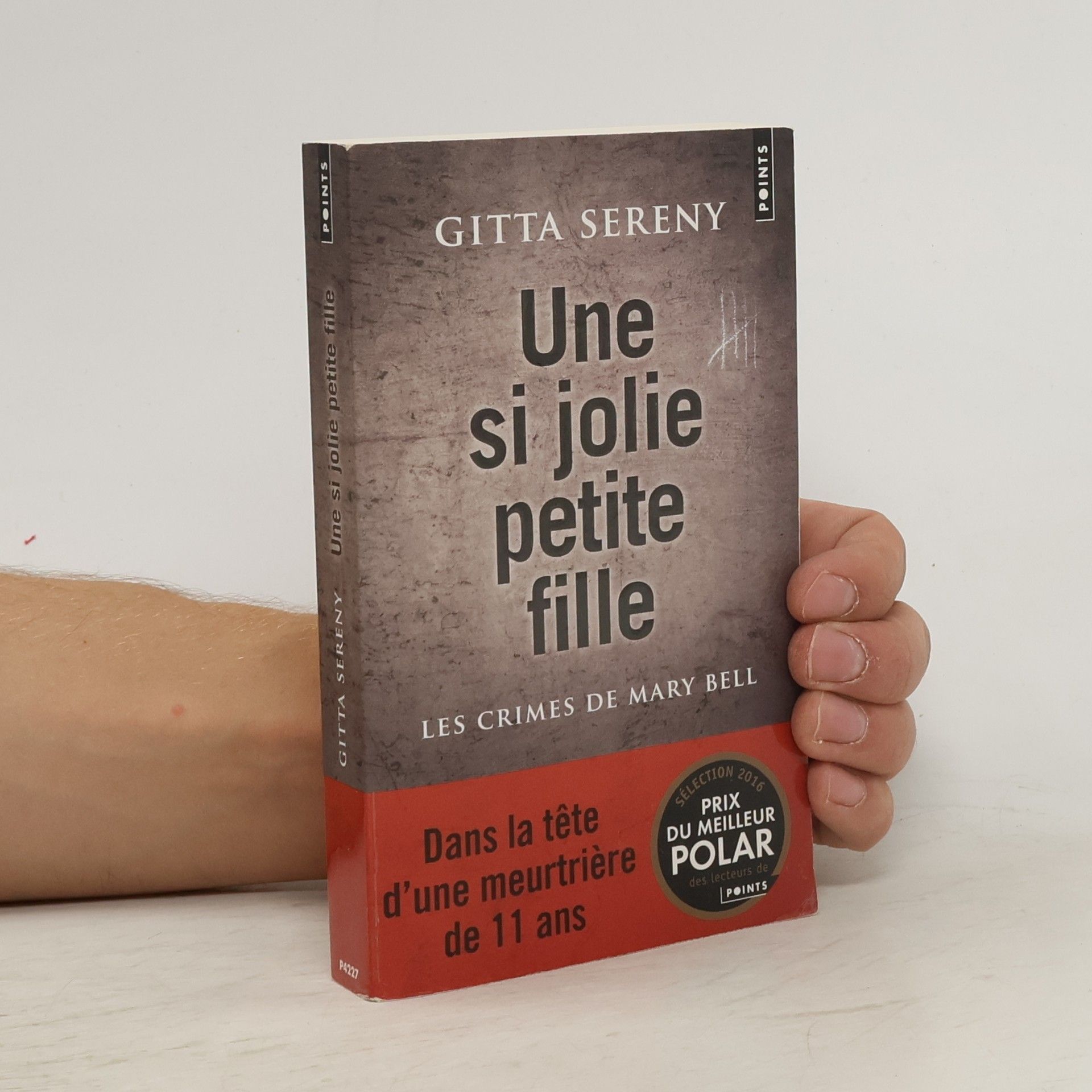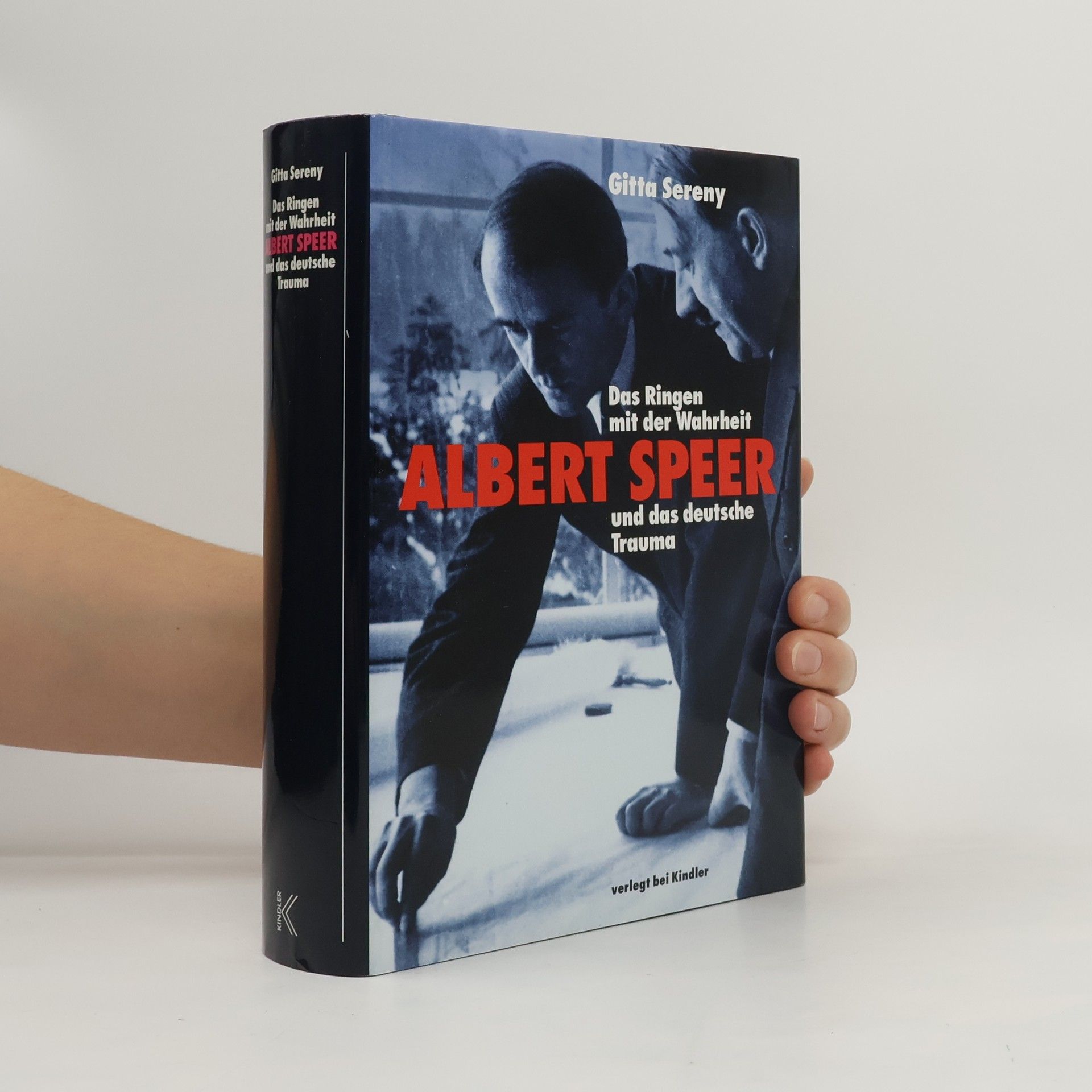Im Mittelpunkt steht Albert Speer, Architekt Hitlers und später als Rüstungsminister zweitmächtigster Mann im Staat. Im Nürnberger Kriegsverbrecherprozess nahm er die Verantwortung für die Taten des Hitler-Regimes auf sich, konnte aber die Wahrheit, wie stark er sich persönlich in diese Verbrechen verstrickt hatte, noch nicht erkennen. Dies gelang ihm nach langen Gesprächen mit der Autorin, die hier das Psychogramm eines Mannes aufzeichnet, der – ehrgeizig und blauäugig gleichermaßen – einen Pakt mit dem Teufel schloss. Sereny schildert, wie ein junger Mann aus vornehmem Hause, ein brillanter Kopf ohne politische Ambitionen, in den Bann des „Führers“ gerät und nach und nach immer bedeutendere Aufgaben im Reich übernimmt, ohne die Tragweite seines Handelns zu begreifen. Speer sollte sich zeit seines Lebens nicht aus der Konfrontation mit dem Geschehenen entlassen sehen. Indem Gitta Sereny Albert Speers komplexen Charakter sezierte, hat sie zugleich das tiefgründigste Buch über Hitler und das Abgründige des Nazigedankengutes geschrieben.
Gitta Sereny Book order (chronological)
Gitta Sereny, an Austrian-born journalist, biographer, and historian, became renowned for her penetrating explorations into the nature of evil and childhood trauma. Her own early experiences with Nazism in early 20th-century Central Europe profoundly shaped her lifelong fascination with understanding the darker aspects of human nature. Through meticulous research and interviews, Sereny delved into the psyches of individuals caught in historical atrocities, from Nazi functionaries to survivors. Her work, marked by deep empathy and an unflinching pursuit of truth, offers chilling insights into how individuals can perpetrate or endure horrific acts.

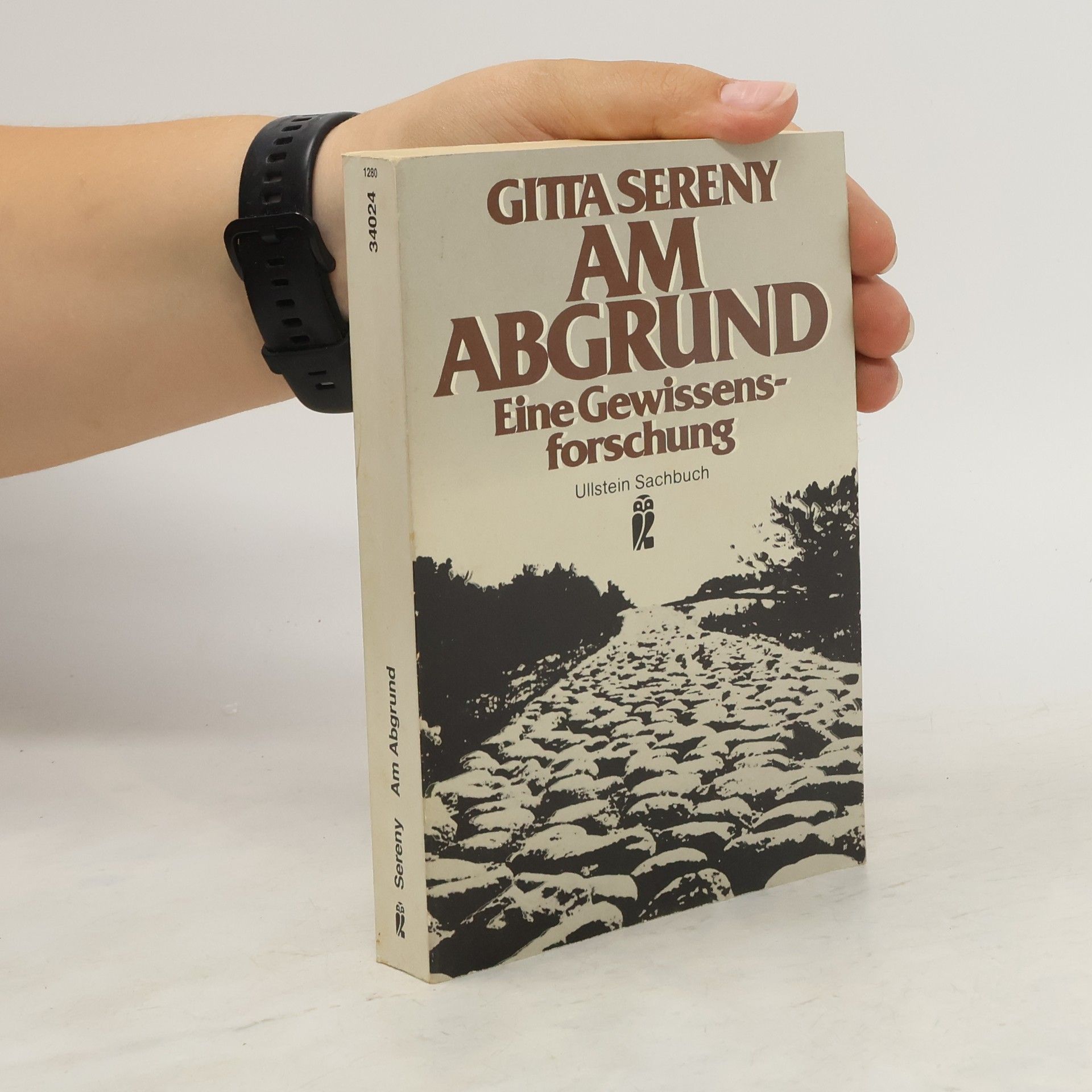

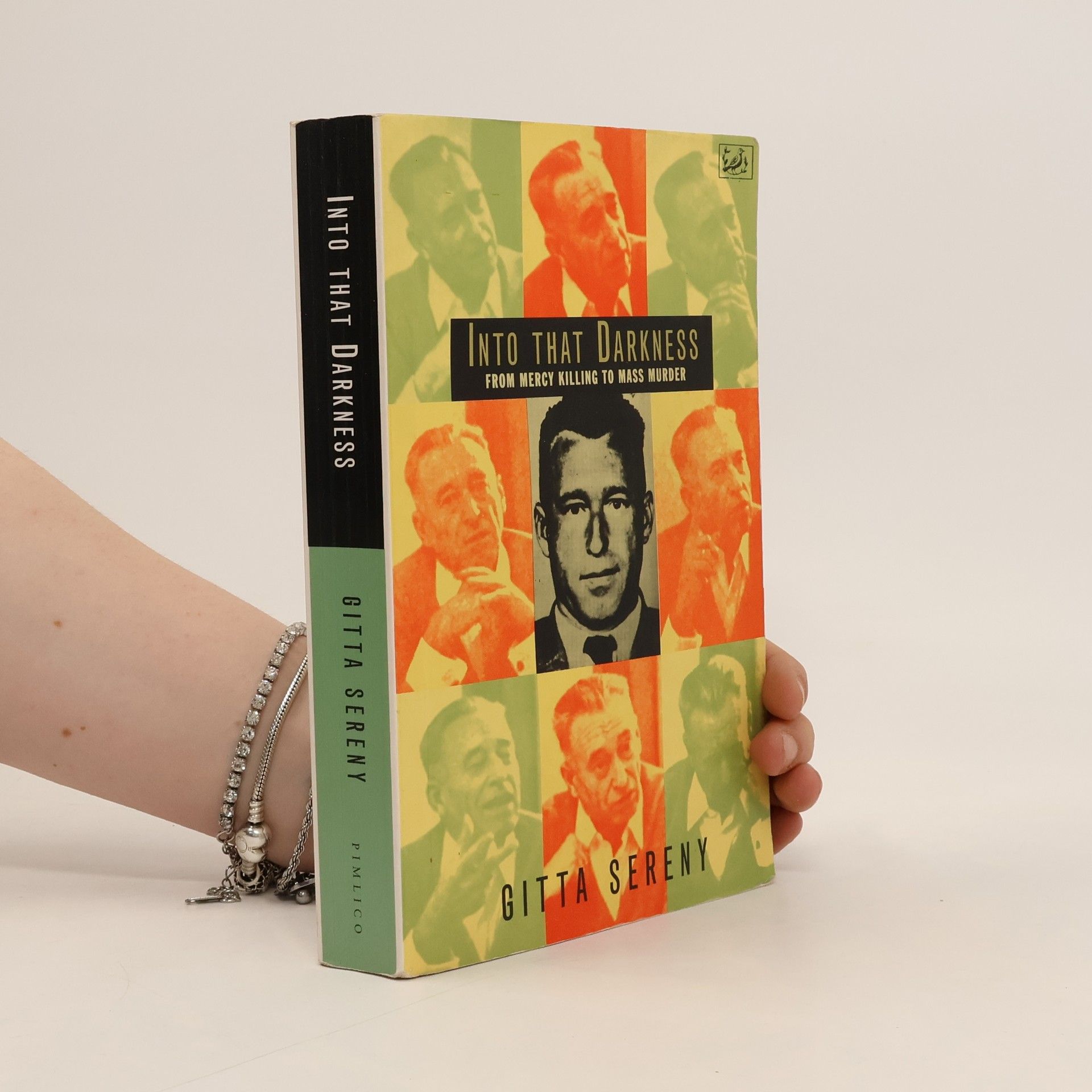
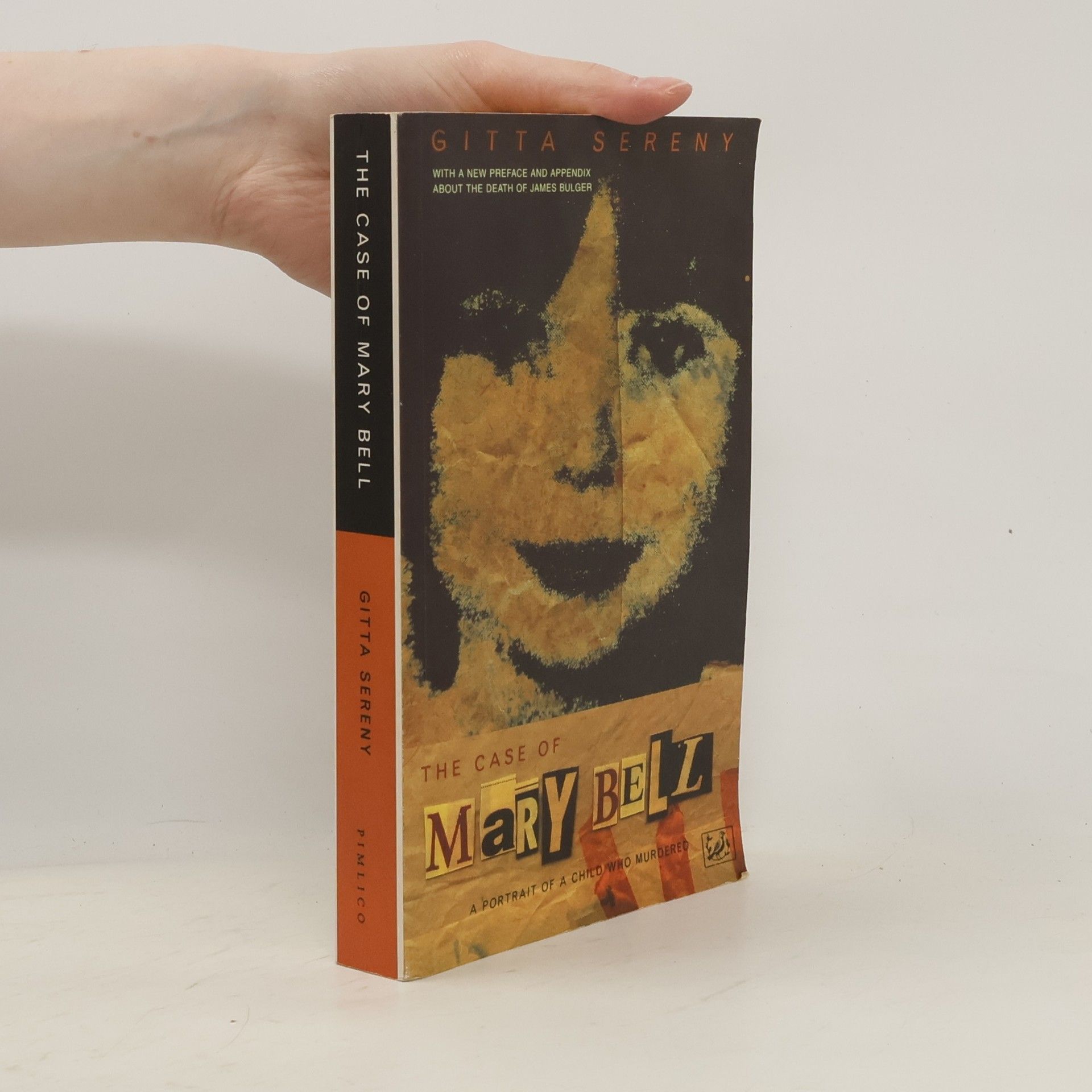


The German trauma
- 352 pages
- 13 hours of reading
Machine generated contents note: I Beginnings I -- 2 My Friend, a Heroine of France I 5 -- 3 Stolen Children z5 -- 4 Generation without a Past 53 -- 5 Colloquy with a Conscience 87 -- 6 Men Who Whitewash Hitler 135 -- 7 The Hitler Wave 147 -- 8 Fakes and Hoaxes: The Hitler Diaries 162 -- 9 The Great Globocnik Hunt 194 -- 10 Private Lives 216 -- 11 The Three Sins of Syberberg 220 -- 12 'The Truth Is, I Loved Hitler' 227 -- 13 Leni 234 -- 14 Kurt Waldheim's Mental Block 247 -- 15 The Man Who Said 'No' 262 -- 16 Albert Speer 266 -- 17 Children of the Reich 286 -- 18 The Case of John Demjanjuk 309 -- 19 The Right to Say 'No' 358 -- 20 Final Reflections: July 2000 36
En 1968 à Newcastle, deux petits garçons de 3 et 4 ans sont retrouvés sans vie, étranglés. La ville est sous le choc. Rapidement, les soupçons se tournent vers Mary Bell, une fillette de 11 ans, turbulente et particulièrement intelligente. Comment une enfant a-t-elle pu se laisser aller à cette folie meurtrière ? Perçue comme l'incarnation du mal absolu, Mary Bell est condamnée à la prison à perpétuité. Devenue adulte, elle se prête à une série d'entretiens durant lesquels elle se livre et s'interroge. Est-il possible d'expliquer de tels gestes ? Comment affronter sa propre monstruosité ? La rédemption est-elle possible ?
Monstrum, Teufelin und Brut des Bösen, so die Schlagzeilen der englischen Presse über Mary Bell, die 1968, gerade einmal 11 Jahre alt, zur Mörderin an zwei kleinen Jungen wurde. Leider hat, wie mehrere spektakuläre Verbrechen von Kindern an Kindern in jüngster Zeit beweisen, die damalige Tragödie bis zur heutigen Zeit nichts von ihrer beklemmenden Aktualität eingebüßt. In dem Buch Schreie, die keiner hört rollt nun Gitta Sereny den Fall Mary Bell im Gespräch mit der inzwischen wieder in Freiheit lebenden Kindesmörderin nochmals auf. Entstanden ist das erschütternde Psychogramm einer jungen Frau, die gegen die Schatten der Vergangenheit kämpft. Dabei sucht die Verfasserin nicht nach Entschuldigungen für diese schreckliche Tat, sondern nach Erklärungen. Mary hatte durch ihre Erfahrungen in ihrer Kindheit eine Last mit sich herumgetragen, die von den für sie verantwortlichen Erwachsenen nicht gesehen oder ignoriert wurde, bevor es dann zu diesen Gewalttaten kam. Damit ist sie für die Autorin ein legitimes Beispiel dafür, in welchem Maß die Gesellschaft versagt und mit den daraus sich ergebenden Tragödien nicht umgehen kann. Weiterhin gerät das Buch zu einem eindrucksvollen Plädoyer gegen das englische Rechtssystem, das über kleine Kinder wie über Erwachsene richtet. Fazit: Ein unbequemes Buch, das unter die Haut geht und keinen gleichgültig lassen kann. --Jan Vaiden
Das Ringen mit der Wahrheit
- 861 pages
- 31 hours of reading
Gitta Sereny ; Aus Dem Englischen Von Helmut Dierlamm, Klaus Fritz Und Norbert Juraschitz. Includes Bibliographical References (p. [723]-734) And Index.
The Case Of Mary Bell
- 336 pages
- 12 hours of reading
In December 1968 two girls who lived next door to each other - Mary, aged eleven, and Norma, thirteen - stood before a criminal court in Newcastle, accused of strangling two little boys;
Gitta Sereny first saw Albert Speer on trial at Nuremberg. Over the last years of his life she came to know him - through hundreds of hours of conversations - as no other biographer has known a Nazi leader. She interviewed as well the people around him - the celebrated, the notorious and the ordinary. Speer gave Sereny, for her use, a number of unpublished manuscripts, and after his death she obtained access to many of his papers. Out of her probings a huge, and hugely alive, portrait emerges. Sereny takes us through the emotional desert of Speer's childhood and marriage, through his embrace (basically, she demonstrates, for nonideological reasons) of the Nazi Party and his service as Minister of Armaments and Munitions, during which his brutal use of slave labor extended a lost war. She superbly portrays the circles in which Speer functioned: the ambivalent General Staff and the infinitely peculiar and nightmarish upper echelons of Nazism
Überarbeitete Neuausgabe des zuerst 1980 (Ullstein; BA 7/80, 248) erschienenen, in mehrere Sprachen übersetzten, weltweit verbreiteten Buches einer englischen Presse-Beobachterin mehrerer NS-Prozesse: In der Verarbeitung von Gesprächen mit Franz Stangl - Kommandant der Vernichtungslager Sobibor und Treblinka, 1970 wegen Mordes an 900000 Menschen zu lebenslanger Haft verurteilt -, dessen Angehörigen und 5 seiner wenigen überlebenden Opfer ist die Autorin tiefer in die Hintergründe des Massenmordens eingedrungen als viele historische Untersuchungen (E. Jäckel), außerdem ist das Buch authentisches Zeugnis, vergleichbar den autobiografischen Aufzeichnungen von R. Höss (BA 9/78, 221, zuletzt: E-ID 11/88). Primäres Dokument, deshalb nach wie vor wichtig. (2) (LK/HH: Andrae)

